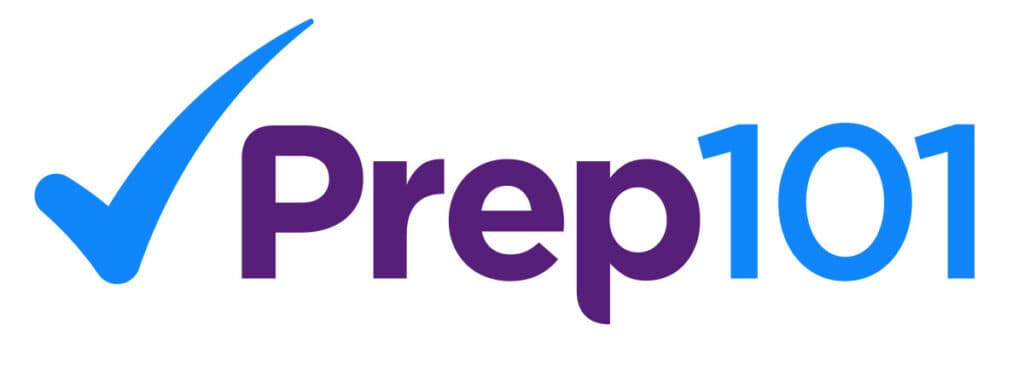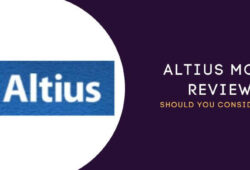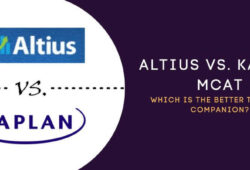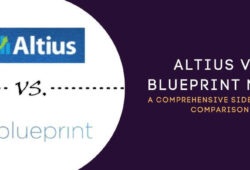Kaplan and Princeton Review are both well-recognized names in the test prep industry. Each company boasts a wealth of experience, with many positive testimonials to back up its claims of test prep success.
So how do you decide between Kaplan and Princeton Review MCAT courses?
Are they all just the same, or are one company’s resources far superior to the others? Which MCAT course option offers the best value for money, guaranteeing MCAT success without costing you an arm and a leg?
Well, that’s exactly what we aim to establish in this in-depth Kaplan Vs. Princeton Review MCAT comparison. So let’s dive right in, shall we?
Kaplan MCAT Vs. Princeton Review Comparison Table
Kaplan MCAT | Princeton Review MCAT | |
Price Range | Between $2,099 and $7,299 | Between $1,999 and $7,349 |
Content Access Period | 6, 9, Or 12 Months | 1 Year |
Live Online Instruction | 42 Hours | 40+ Hours |
On-Demand Videos | 90+ | 500+ |
Full-Length Practice Tests | 17 | 16 |
Diagnostic Exams | None | 35 |
MCAT Prep Books | 7 | 11 |
In-Person Prep Option? | Yes | No |
Mobile App? | Yes | No |
Higher Score Guarantee? | Yes | Yes |
Kaplan Vs. Princeton Review MCAT Overview
Founded in 1938, Kaplan is widely recognized as an authority when it comes to prepping students for standardized tests such as the Medical College Admission Test.
The company offers many MCAT test prep resources, including tutoring services, in-person and online programs, print books, and a horde of other online materials.
Here’s an overview of the MCAT study options offered by Kaplan:
Kaplan MCAT Courses | Pricing |
On-Demand Course | From $2,099 |
Live Online Course | From $2,699 |
In-Person Course | From $3,199 |
Private Tutoring + Live Online Course | From $3,399 |
5-Week Online Bootcamp | $7,299 |
The Princeton Review, founded in 1981, is a similarly well-recognized authority when it comes to preparing students for standardized tests. It is worth noting that the Princeton Review is not affiliated with Princeton University.
The Princeton Review offers test prep courses, tutoring services, and guidebooks, which are more or less the same MCAT resources offered by Kaplan.
Specifically, here’s an overview of the MCAT study options offered by Princeton Review:
Princeton Review MCAT Courses | Pricing |
Self-Paced Course | $1,999 |
LiveOnline Course | $2,799 |
MCAT 513+ Course | $3,499 |
515+ Immersion Course | $7,349 |
Private Tutoring | From $3,299 |
Now let’s take a keener look at the differences between Kaplan and Princeton Review and help establish once and for all which of the two is a more suitable MCAT prep option.
Kaplan MCAT Vs. Princeton Review Detailed Comparison In 2024
Pricing & Content Access Periods
One of the striking differences between Kaplan’s MCAT courses and Princeton Review’s MCAT courses is the content access period offered.
Princeton Review offers a fixed 1-year access period for all their prep courses and packages, and similarly, all course packages have fixed pricing.
Conversely, Kaplan provides three course access length options: 6, 9, or 12 months and the pricing for each package varies depending on the access length you sign up for.
For instance, you’ll pay $2,099 for the 6-month On-Demand Kaplan course, but the 12-month option costs $2,599.
Pricing-wise, Kaplan and Princeton Review appear to be similarly priced, but this is only if you are comparing the Princeton Review pricing to Kaplan’s 6-month options.
When you compare the 12-month options, you begin to see that there’s a considerable rift between the two MCAT prep companies.
Kaplan Vs. Princeton Review Price Comparison | |||
Kaplan MCAT | Princeton Review MCAT | ||
12-Month On-Demand Course | $2,599 | 12-Month Self-Paced Course | $1,999 |
12-Month Live Online Course | $3,199 | 12-Month LiveOnline Course | $2,799 |
As you can see, the Princeton Review is priced about $500 lower than Kaplan MCAT.
Princeton Review has the upper hand here for being the more affordable MCAT prep option between the two, therefore giving better value for money.
Content Coverage
Both Kaplan and Princeton Review offer very intense, content-heavy curriculums that comprehensively cover everything you need to know to successfully get you through the MCAT and into med school.

The Kaplan MCAT prep curriculum is very concise, with very little fluff. However, they do throw a ton of formulas at you, along with plenty of overview information that is incredibly helpful but, at the same time, can feel quite overwhelming.
On the other hand, the Princeton Review MCAT prep curriculum is incredibly dense to the point the program appears to be giving too many details that can feel similarly overwhelming and overbearing.
While having too much content going into great detail may appear to be a good thing, it isn’t necessarily so. Princeton Review’s over-detailed nature can make it hard for students to tell the depth of knowledge they need to know on a specific topic.
As such, while Kaplan is more tailored toward the average pre-med test-taker, Princeton Review would be best suited for the non-traditional pre-med students who took their prerequisites quite a while back and are, therefore, in need of a more intense refresher course.
Tutoring Options
Both Kaplan and Princeton Review tutoring options come bundled together with their respective Live Online MCAT Prep courses.
While that may be a good thing for a pre-student that needs both study options, it is a great disadvantage for students who simply need some tutoring on a few topics they may be struggling with.
So, in that case, both programs fall short in lacking the flexibility of offering tutoring by the hour as needed by a student.
Aside from that, both companies offer two tutoring options: a basic package and a more premium higher-value package. The interesting twist here is that Kaplan overall has cheaper tutoring packages than Princeton Review.
Here’s a comparison of their basic tutoring packages:
Kaplan Vs. Princeton Review Basic Tutoring Packages Comparison | |||
10 Tutoring Hrs. | 20 Tutoring Hrs. | 40 Tutoring Hrs. | |
Kaplan MCAT | $3,399 | $4,399 | $6,399 |
Princeton Review MCAT | $3,299 | $5,200 | $8,800 |
As you can see, while Princeton Review is cheaper than Kaplan when it comes to the self-paced and live-online MCAT prep courses, Kaplan is the cheaper option when it comes to one-on-one tutoring.
Office Hours & Workshops
One major advantage of taking any MCAT prep course is the Office Hours that come with your package.
These are an incredibly valuable resource, and taking full advantage of Office Hours could very well make the difference between a 99th percentile scorer and an 80th percentile scorer.
Simply put, Office Hours are interactive lecture sessions led by an expert MCAT instructor whereby the sessions take a much more nuanced and detailed look at topics than what you get in a typical class lecture.
You not only ask questions and receive immediate feedback from a highly-qualified MCAT instructor but also get to receive additional instruction on how best to approach a certain topic or concept that you may be struggling with.
Now, Kaplan MCAT doesn’t include any Office Hours, but they do offer access to unlimited live-streamed workshops, which is somewhat the same thing.
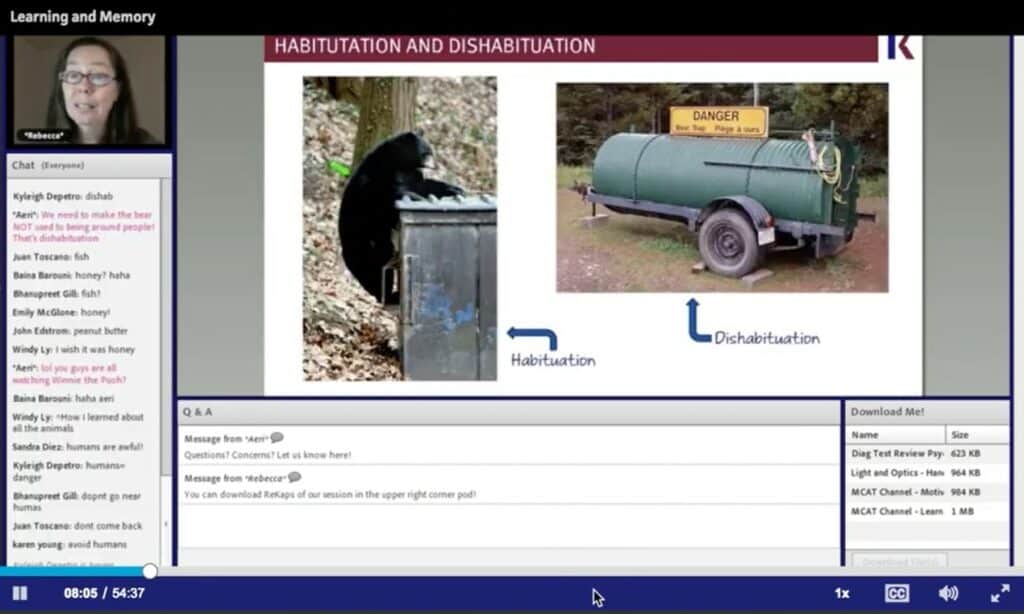
Conveniently, the huge advantage here is that these workshops apply to each Kaplan MCAT prep course, including the lowest-priced one.
Princeton Review, on the other hand, has bundled its Office Hours and Workshops into a module known as MCAT topic Focus and it’s valued at $1,399.
While you can simply choose to enroll in the MCAT Topic Focus separately, the package also comes included in all the Princeton Review MCAT prep courses, except for the Self Paced Course.
This means that enrolling for Princeton Review’s Self-Paced course doesn’t provide access to workshops or office hours.
So, all things considered, Kaplan wins this round for providing access to Unlimited Live Streamed workshops in all their courses, including their On-Demand course.
Because of these workshops, Kaplan definitely gives better value for money even with their budget MCAT course.
Practice Materials
The practice material provided by Princeton Review comprises 35 diagnostic exams, 16 full-length practice tests, 4 subject-specific exams, and thousands of practice questions complete with detailed explanations.
Kaplan MCAT offers a variety of practice resources as well, including 17 full-length practice tests and a 3,000+ QBank with customizable quizzes.
Additionally, both test prep companies include access to all the official AAMC practice materials available, with all their MCAT courses.
Neither Princeton Review nor Kaplan offers very representative practice. The full-length exams, especially the Princeton Review ones, are extremely difficult. Kaplan’s tests are deflated by around 10 points or so.
Also, Kaplan’s CARS practice is particularly disappointing, seeing as the company doesn’t really do a great job at replicating the AAMC CARS.
The content tested on Kaplan tests is very niche overall, and they include a wider range of lower-yield topics.
So overall, while the two companies are excellent for content review, they are not necessarily all that great when it comes to offering representative practice or testing MCAT logic.
Exclusive Deal: Get $100 OFF today and start your MCAT prep the right way!
Pros
Offers the most full-length practice exams of any MCAT prep course.
Includes a personal MCAT coach.
Places a particular emphasis on CARS.
Cons
Does not offer a higher score or money-back guarantee.
MCAT Books

Both Kaplan and Princeton Review provide MCAT books that give a comprehensive review of all the MCAT subjects, which are Biochemistry, Biology, CARS, General Chemistry, Organic Chemistry, Behavioural Sciences, and Physics and Math.
The Kaplan MCAT books come very highly recommended. They not only offer detailed subject reviews but they are written in a way that’s very easy to understand and come with plenty of valuable resources such as the concept checks and end-of-chapter summaries.
Rather than assuming that the learner has physician-level knowledge, Kaplan does a great job of explaining everything clearly, right from the basics, while still keeping things concise.
With their excellent breadth and depth of content, these books are spot-on when it comes to covering exactly what you need to know for the MCAT.
In particular, the Kaplan books are especially excellent when it comes to their coverage of the Chem/Phys and Bio/Biochem sections. However, they do fall short in the CARS and Psych/Soc sections.
The Princeton Review MCAT books are incredibly dense and in-depth to the point of being overwhelming. You would easily get lost in all the information provided, making it hard for you to tell the depth of knowledge you need on a particular topic.
One upside is that Princeton Review covers the Psych/Soc section incredibly well, providing good explanations and content coverage.
However, they do fall incredibly short when it comes to the Biochemistry book. While this section counts for a massive chunk of the MCAT, it is the thinnest book in the Princeton Review series and its content coverage is really scanty and not helpful at all.
Aside from the 7 subject review books, Princeton Review additionally includes 4 exclusive titles, which are an in-class compendium, a Science workbook, a CARS workbook, and a book with Science review questions and solutions.
Now when it comes to these additional Princeton Review prep books, the Science and CARS workbooks are absolute gold.
So overall, while the Kaplan MCAT review books excel in the Bio/Biochem and Chem/Phys section, the Princeton Review MCAT books are perfect for CARS and Psych/Soc.
Guarantees
Kaplan offers a higher score guarantee that applies to all their MCAT courses.
The guarantee is that if, on the official exam, you don’t score higher than your baseline, you can either reactivate your course subscription or get your money back.
Similarly, the Princeton Review also offers a better score money-back guarantee for all their MCAT courses, except for their Targeted Tutoring package.
Verdict: Which One Is Better?
Princeton Review and Kaplan are both priced much higher than other MCAT prep courses in the market. So with such high stakes, deliberating between the two test prep companies becomes that much more challenging.
There are plenty of similarities between the two. Both offer extensive, content-heavy curriculums, and just like Princeton Review MCAT, Kaplan MCAT also doesn’t necessarily offer the best MCAT practice in terms of representativeness.
With either test prep company, the full-length exams are quite difficult. However, this is not necessarily such a bad thing.
Challenging MCAT practice exams can be great for building your stamina, and if you can get by with a decent score, then you are definitely guaranteed to do well on the real thing.
While the Princeton Review courses are much more in-depth to the point of being overbearing, Kaplan’s content coverage is much more concise such that it doesn’t feel overwhelming.
From Princeton Review’s video lessons to their classroom instruction and even to their books, you can easily drown in all the information provided, making it hard for you to tell the level of knowledge you need on a particular topic.
Kaplan, however, has excellent breadth and depth of content, covering exactly what you need to know for the MCAT.
Aside from that, while Princeton Review books are superior in covering Psych/Soc and CARS, Kaplan books dominate the Bio/Biochem and Chem/Phys sections.
So objectively speaking, each of the two test prep companies has its pros and cons, as well as its strengths and downfalls.
Your choice between the two options will have to boil down to what you are looking for in an MCAT test prep course and which MCAT section you are particularly struggling with.
If it has been a long time since you took the prerequisites, or are struggling with the Psych/Soc or CARS section, then Princeton Review MCAT will be a better fit for you.
On the other hand, if you still have a good grasp of the MCAT concepts and just need a mild refresher, or are struggling with the Bio/Biochem or Chem/Phys sections, then Kaplan MCAT will be a better fit for you.
Overall, I’d say Kaplan has a clear upper hand over Princeton Review.
Kaplan offers better studying flexibility by allowing you to choose your desired study length, create your own custom quizzes, and even take in-person MCAT prep classes, depending on where you are located.
Furthermore, they have a mobile app that’s the perfect companion for studying on the go, and the Kaplan MCAT books are incredibly well-written and resourceful.
So Kaplan Vs. Princeton Review MCAT: which is the better choice?
Well, overall, Kaplan wins.
You can check out the other comparisons we did on other MCAT prep resources below:
Kaplan Vs. Princeton Review MCAT FAQs
Is Princeton Review Better Than Kaplan MCAT?
No, Princeton Review is not better than Kaplan MCAT.
For starters, Kaplan MCAT has better content coverage in terms of conciseness. Furthermore, they have a number of premium features, such as unlimited workshops included even in their budget self-paced course option.
Just as well, the Kaplan books are far better written, with excellent breadth and depth of content covering exactly what you need to know for the MCAT. No more, no less.
The one area where Princeton Review is better than Kaplan is in CARS.
From the books to the practice tests, Kaplan is not good at replicating AAMC CARS, whereas the Princeton Review CARS workbook is an absolute godsend.
Princeton Review Vs. Kaplan MCAT Books: Which Ones Are Better?
Princeton Review is better than Kaplan MCAT when it comes to their Science and CARS workbooks.
However, the Kaplan Bio/Biochem and Chem/Phys books are far better than the Princeton Review ones.
Are Kaplan MCAT Practice Tests Harder Than Princeton Review?
No, the Princeton Review MCAT practice tests are extremely difficult, much harder than the Kaplan exams.



